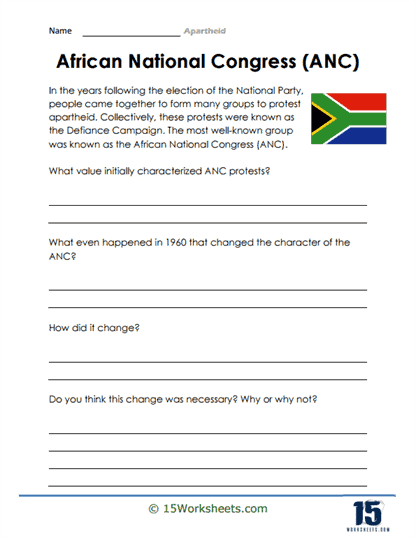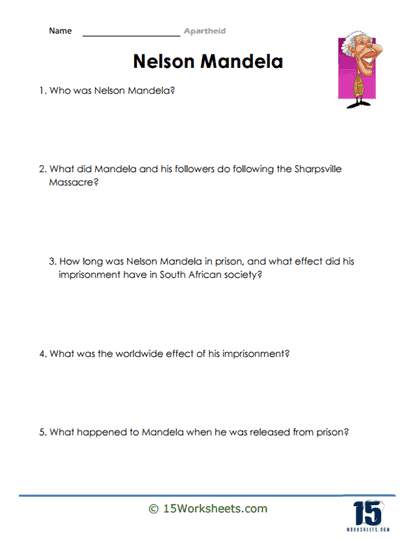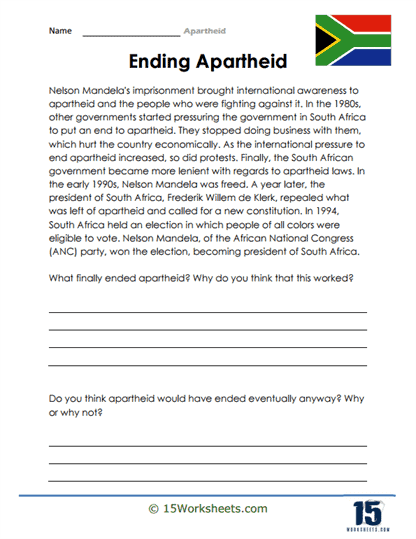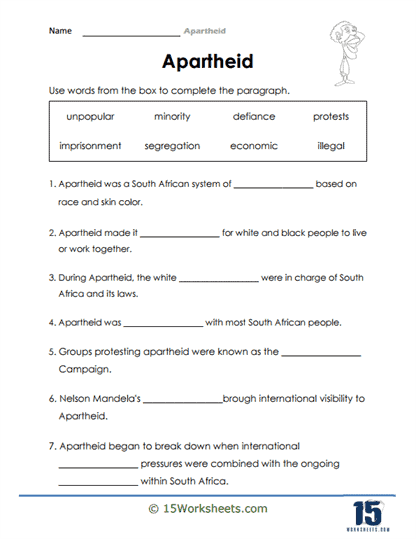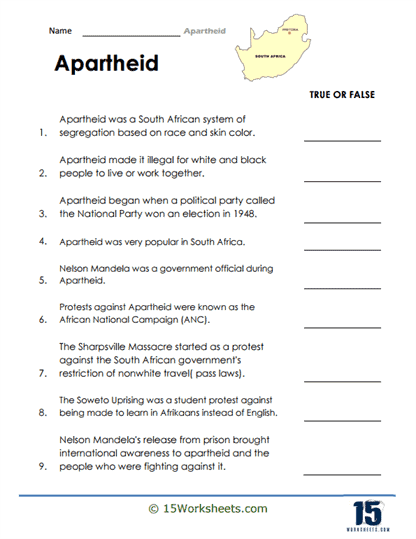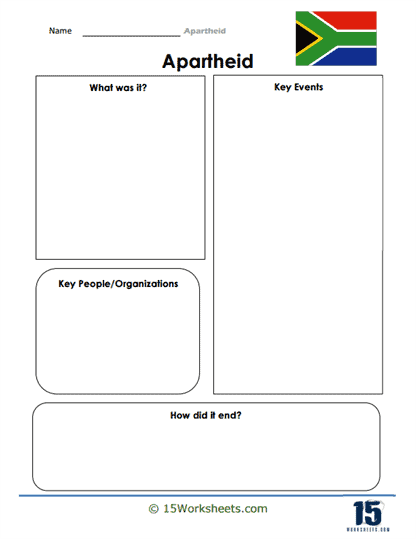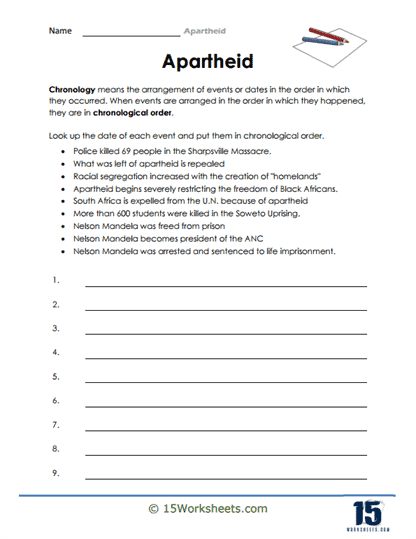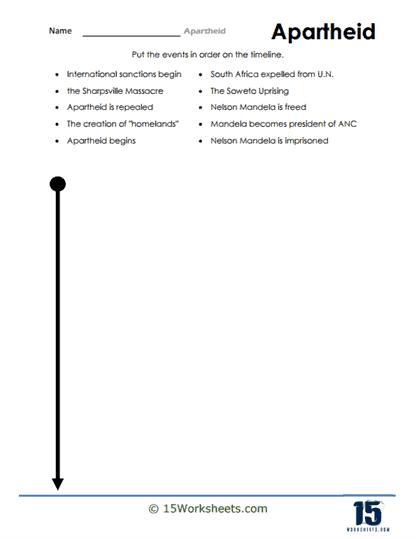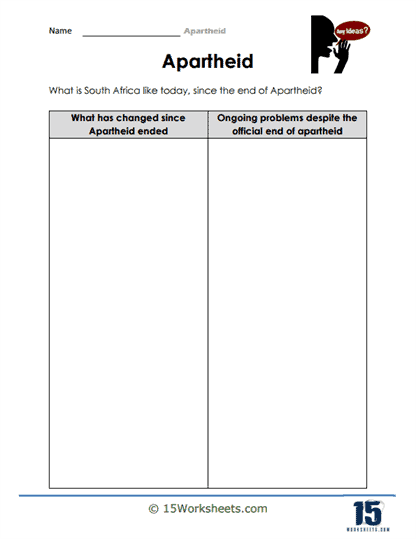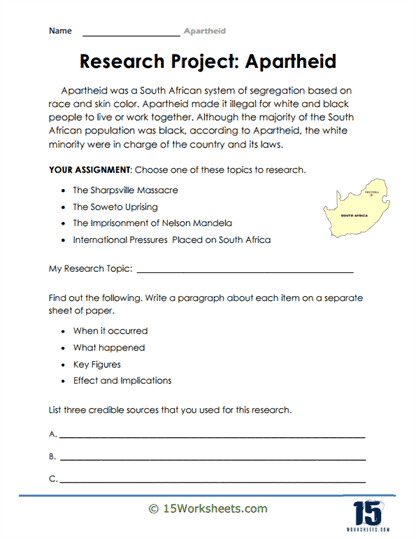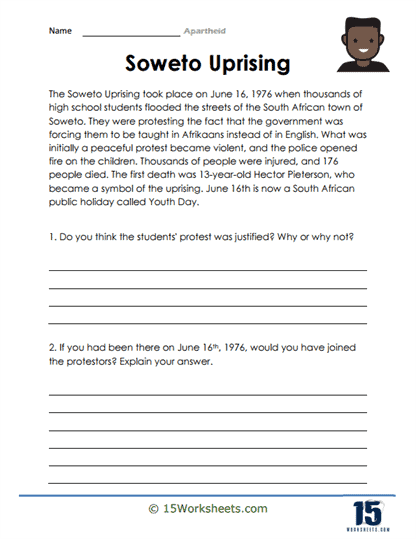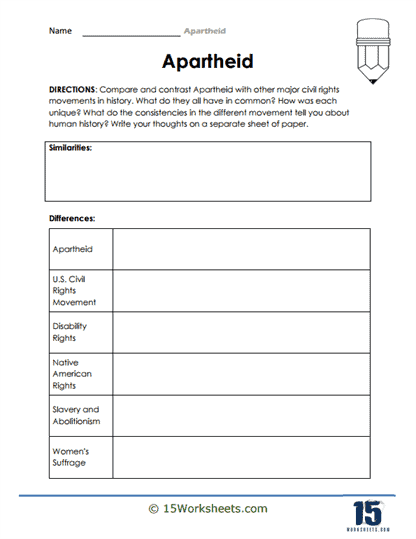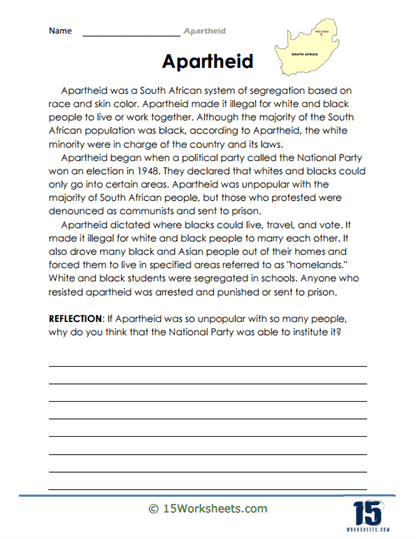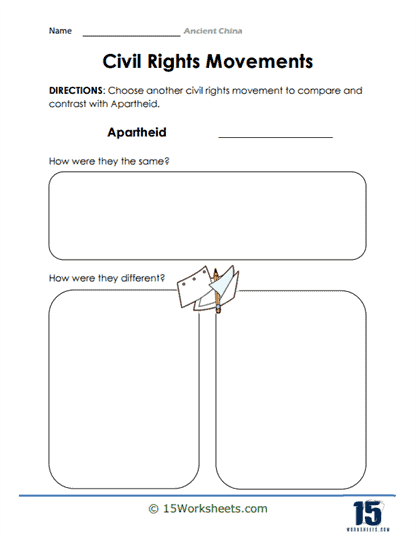Apartheid Worksheets
All About These 15 Worksheets
Students explore the complex and significant history of Apartheid with this comprehensive series of 15 worksheets. Designed to foster understanding and critical thinking, this collection is designed to immerse students in the complexities and impact of apartheid in South Africa. From studying key figures like Nelson Mandela and the African National Congress (ANC) to examining significant events like the Sharpeville Massacre and the Soweto Uprising, these worksheets provide a deep understanding of the struggle against apartheid and the eventual dismantling of the system. By completing these worksheets, students will:
- Discover the history and significance of the ANC in the fight against apartheid;
- Explore the tragic events of the Sharpeville Massacre and its impact on the anti-apartheid movement;
- Study Mandela’s role as a leader, his activism against apartheid, his imprisonment, and his eventual rise to become the first black president of South Africa;
- Examine the processes and key events that led to the end of apartheid in South Africa;
- Fill in missing information to complete sentences and demonstrate their comprehension of the history of Apartheid;
- Engage their critical thinking skills by determining the accuracy of statements about Apartheid;
- Visualize the chronology and significance of major events during the apartheid era with an informative infographic;
- Order key events to create a timeline that highlights the progression and key turning points of apartheid;
- Reflect on the changes that have occurred since the end of apartheid, and what could still be changed to fully eradicate ongoing problems that have persisted since;
- Conduct an in-depth research project on a specific aspect of apartheid;
- Examine the causes, consequences, and the role of youth activism in the pivotal moment of the Soweto Uprising;
- Analyze and compare apartheid with other civil rights movements;
- And engage in thoughtful reflection on the causes and impact of apartheid.
Engaging with this series of worksheets will deepen students’ understanding of apartheid, its impact on South Africa, and its resonance in the struggle for equality and human rights worldwide. Through engaging activities, critical analysis, and thoughtful reflection, students will develop empathy, historical awareness, and a commitment to justice and equality.
What Was Apartheid?
Apartheid was a system of institutionalized racial segregation and discrimination that was implemented in South Africa from 1948 until the early 1990s. The word “apartheid” comes from the Afrikaans word for “separateness” or “apartness.”
Under apartheid, people were classified into racial groups (Black, White, Colored, and Indian) and were separated into different geographic areas, with Blacks being given the worst land and resources. The government enforced strict laws that dictated where people could live, work, and travel based on their race.
The apartheid regime also imposed restrictions on the rights of Black South Africans, including the right to vote, own property, and receive an education. Many Black South Africans were subjected to forced removals from their homes and were relocated to designated townships or homelands.
Apartheid was widely condemned by the international community, and it faced increasing opposition from Black South Africans and their allies, including the African National Congress (ANC) and its leader, Nelson Mandela. In 1990, Mandela was released from prison after serving 27 years for his anti-apartheid activism, and negotiations began between the government and the ANC to bring an end to apartheid.
In 1994, South Africa held its first democratic elections, which marked the end of apartheid and the beginning of a new era of democracy and equality in the country.
While the official system of apartheid in South Africa was dismantled in the early 1990s, there are still ongoing issues related to racial discrimination and inequality in the country. Although there have been many positive changes since the end of apartheid, including the promotion of equality and the development of policies aimed at redressing the imbalances of the past, significant disparities remain in South African society.
For example, Black South Africans continue to experience high levels of poverty, unemployment, and lack of access to basic services such as housing, healthcare, and education. The legacy of apartheid, including the spatial and economic segregation it created, still affects many South Africans today.
There are also ongoing concerns about racism and discrimination in other parts of the world, including the United States, where racial disparities in areas such as education, healthcare, and the criminal justice system have been well-documented. While these issues are not the same as apartheid, they do highlight the ongoing need to address systemic discrimination and inequality wherever it exists.

